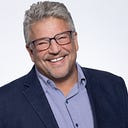COVID CHRONICLES 05/22/20
Mental Health in the Pandemic
Part 2 of 3 — What To Do If You Need Help
In the typical way of unfolding a multi-part story, one would build until the very end, then issue “a call to action.” That’s not appropriate when dealing with mental health. There are numerous recommendations and style guides indicating how to communicate around these issues. One key learning is to always include resources, which is why I ended Part 1 the way I did.
Part 2 is specifically for those who are currently suffering — at whatever level — along with those who live or love someone who’s suffering. Let’s face it, if you’re reading this and need help, you don’t need to hear anything more about the problem or trends. We’ll do a deeper dive into some of the issues raised in Part 1 in the final part of the series.
HELP LINES AND RESOURCES
Here are three organizations where you can seek and find help for yourself and loved ones, as well as reliable information.
The National Suicide Prevention Lifeline “is a national network of local crisis centers that provides free and confidential emotional support to people in suicidal crisis or emotional distress 24 hours a day, 7 days a week” at 1–800–273-TALK (8255). Their website has a regularly updated section on Emotional Wellbeing During the COVID-19 Outbreak.
NAMI, the National Alliance on Mental Illness “is the nation’s largest grassroots mental health organization dedicated to building better lives for the millions of Americans affected by mental illness.” The NAMI HelpLine can be reached Monday through Friday, 10 am–6 pm ET, 1–800–950-NAMI (6264) or info@nami.org. The NAMI website has an excellent resources page.
Mental Health America (MHA) “is the nation’s leading community-based nonprofit dedicated to addressing the needs of those living with mental illness and promoting the overall mental health of all Americans.” Their emergency helpline is 1-800–273–8255. The MHA website provides a plethora of links and resources.
PERSONAL STORIES
In a local TV interview with Robin Williams’ son, Zak, he opens up about his mental health struggles and advocacy work amid the COVID-19 pandemic. Zak says self-care is essential to his mental health, noting,
“If you don’t prioritize yourself, to fill your cup personally, then you can feel very drained. I’m very focused on talk therapy, engaging in community support groups, I personally stay away from drugs and alcohol, that’s been very helpful for me, especially during this time. It’s enabled me to deal with feelings of anxiety and depression head on.”
A column from a Florida Atlantic University student describes what he learned in How I maintained my mental health during a pandemic, which includes focusing on his faith.
ADVICE
The following applies to both people with chronic mental health issues as well as those that are COVID-19 related.
CNET, of all places, brings it’s talent at making sense of complexity in Depression, anxiety, burnout: How to stay mentally healthy during COVID-19 and beyond. The article compiles its mental health advice into six easy-to-digest sections.
- How to deal with burnout
- How to calm and control anxiety
- How to meditate and why it works
- The importance of getting outdoors
- The mental health benefits of exercise
- Sleep and mental health
Detroit’s NPR Station WDET did a half-hour interview with Dr. Alan Krohn, a clinical psychologist and psychoanalyst in private practice in Ann Arbor. MI. He discusses How to take care of your mental health during a pandemic.
The Conversation touts the benefits of exercise in The chronic stress of coronavirus is affecting your mental health. Here’s how exercise can help.
The University of South Australia demonstrates how yoga can be “ideal for COVID-19 self-isolation” in New Research Shows Yoga Can Significantly Improve Mental Health.
INSTITUTIONAL RESPONSES
A San Francisco Chronicle article, How Warriors are making mental health a priority during coronavirus shutdown, demonstrates the ways a compassionate and forward-thinking organization can meet the needs of its employees.
In his Los Angeles Times Op-Ed, COVID-19 is affecting our collective mental health. These resources can help, Los Angeles County Department of Mental Health Director Dr. Jonathan Sherin lays out the steps his office is taking to offer free mental health assistance to all county residents including a partnership with Headspace, an expanded Department of Mental Health help line at 1–800–854–7771, and a plan for network of trained grassroots mental health “ambassadors.”
“The message of our outreach is simple: Wherever people convene they can connect, and through connection they can heal.”
The Ad Council discuss their public service campaigns to address mental health and isolation in COVID-19, Isolation and Mental Health: How we stay connected, including #AloneTogether, which gives people the tools to stay connected with each other while staying home and social distancing, and “Seize the Awkward,” which empowers young people to check in with friends who might be struggling with their mental health — even if they can’t connect in person right now.
I appreciate recommendations for other resources people have found valuable. I will add them to this post and keep it updated.
